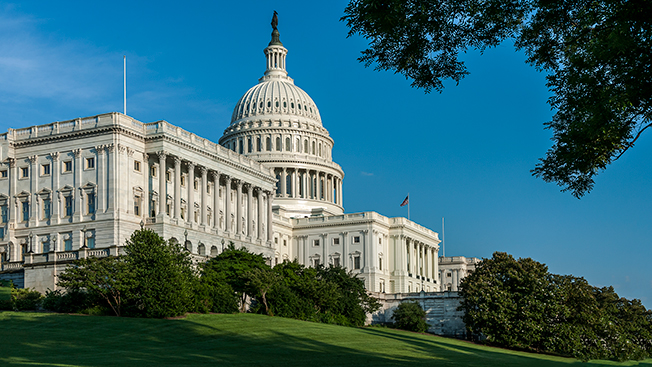Washington loves nothing better than to chew and chew and chew over issues. And this week's mastication festival focuses on the D.C. Circuit's decision to strike down the Federal Communications Commission's net neutrality rules while affirming the agency's right to regulate Internet traffic.
Say what?
This seeming incongruity has sent bloggers on rants and compelled lawmakers to issue press releases, as it caused academicians to ponder and policy advocates to spin.
Depending on what column, blog or press report you read, the decision either put an end to the Internet as we know it or it freed the Internet from what could be shackling rules that the FCC passed in a split decision at the end of 2010.
In the end, you probably should ignore the extremes and figure the result of the court's decision lies somewhere in between.
Here's what you need to know:
The court's decision on Tuesday had something for everyone.
Supporters of the FCC's open Internet rules were handed a victory since the ruling lets the FCC regulate the Internet, just not the legal way it did it in 2010. Either the FCC chooses to classify the Internet as a common carrier (like it does the phone companies), or it classifies the Internet as an information service. The court told the FCC Tuesday when it shipped the rules back to the agency for a rewrite that it can't have it both ways. The agency can't classify the Internet as an information service, then regulate it with common carrier-type rules like those adopted in 2010, which prohibit blocking or slowing down traffic for specific services.
Like most things, the debate is all about the best way to preserve the open Internet. No one is against an open Internet. But those who believed the FCC overstepped its authority when it passed the net neutrality rules argued that the rules were a solution in search of a problem, and that passing any regulations was a step towards cutting off the very freedom that made the Internet so important in the first place.
So what about those fears that big broadband providers will turn to "pay for play" type models that shut out small and startup video providers?
No matter whose opinion you read, what happens next depends on whether you believe companies like Verizon (which brought the case) and AT&T, or the cable companies. Right now, they are saying they are all for the open Internet and that it's in their best interest to indiscriminately deliver whatever content you want. "This will not change anything," Verizon said in a statement. Eventually, something has to give because as more people access video online, someone has to pay, whether it's the users for better, faster service—or content companies like Netflix that can afford to pay. No one knows.
The ball, as they say, is in the FCC's court. Even though Democrats would love for Congress to make it "crystal clear" (as Sen. Ed Markey put it) that the FCC has the authority to pass regulations to keep the Internet open, it will go nowhere in Congress. The GOP has already made it crystal clear in the House by passing a resolution opposing the FCC's net neutrality rules, that any effort like that won't fly. So it's up to the FCC, and chairman Tom Wheeler said he would "consider all available options, including those for appeal, to ensure that these networks on which the Internet depends continue to provide a free and open platform for innovation and expression, and operate in the interest of all Americans."








